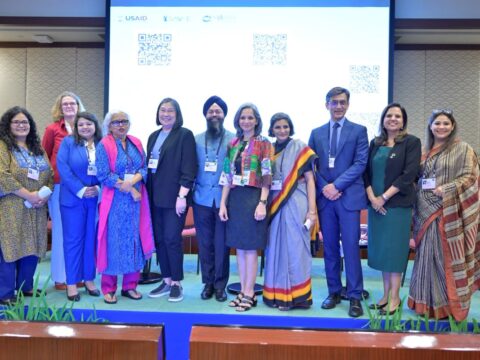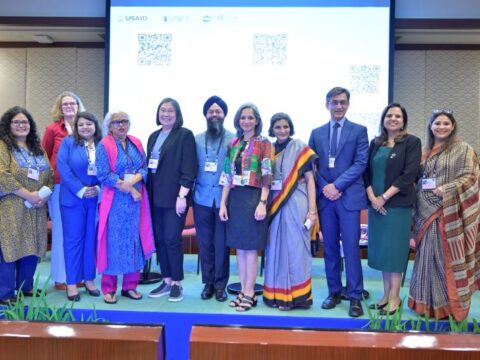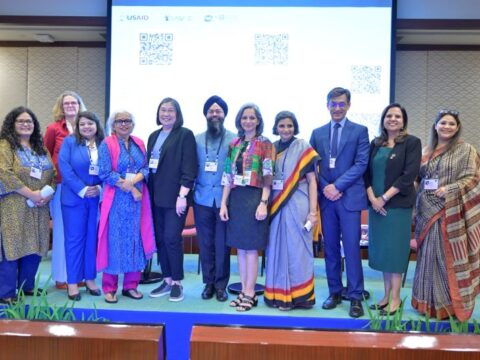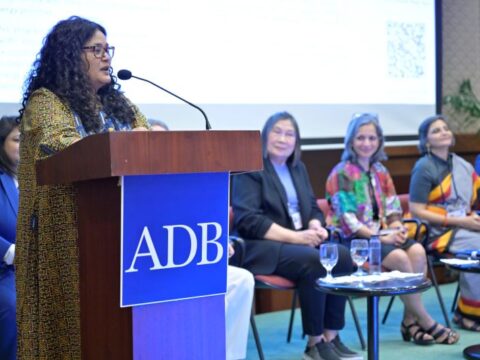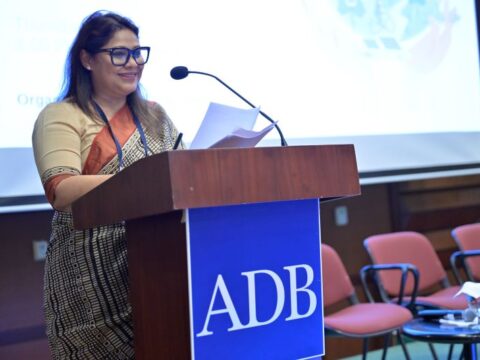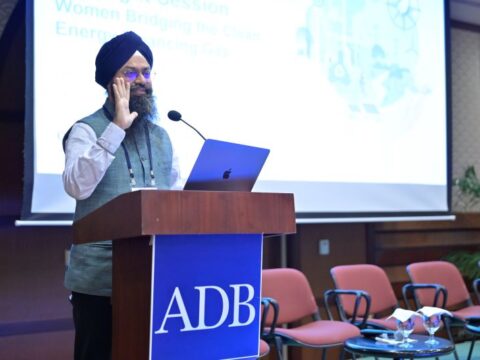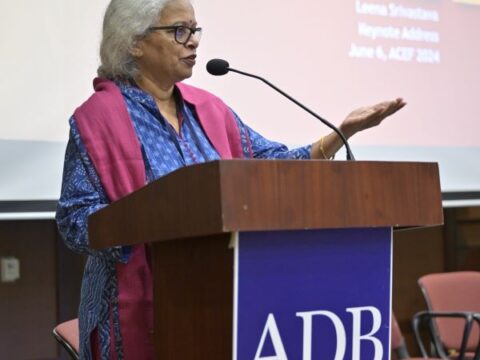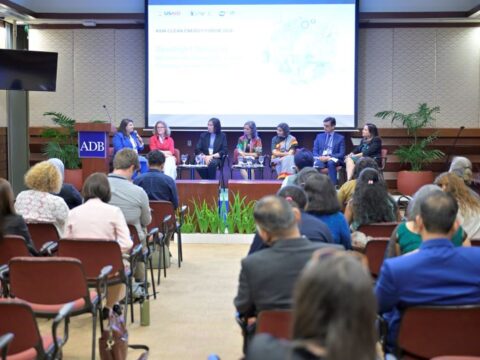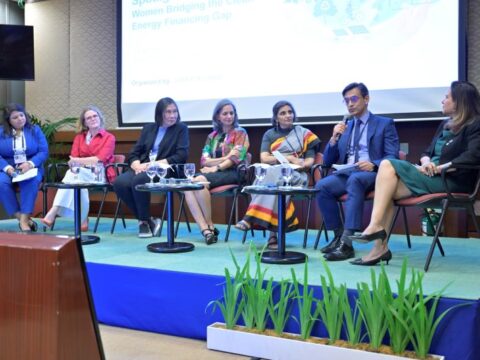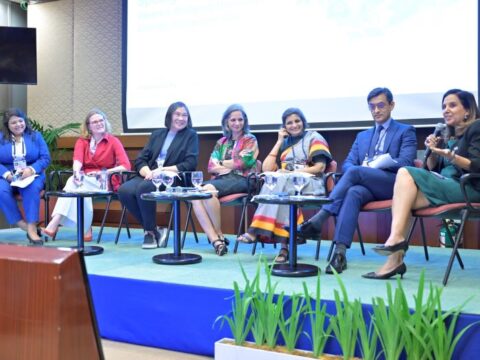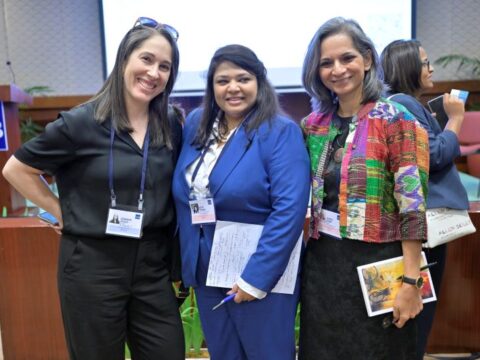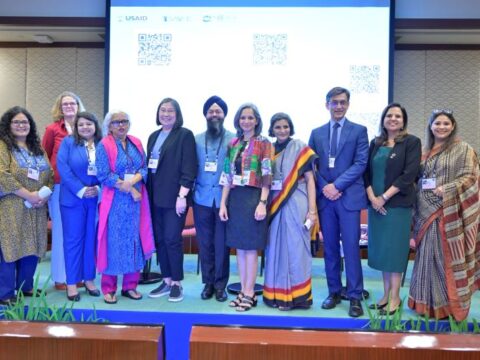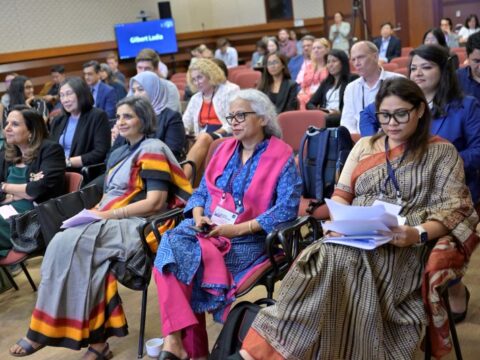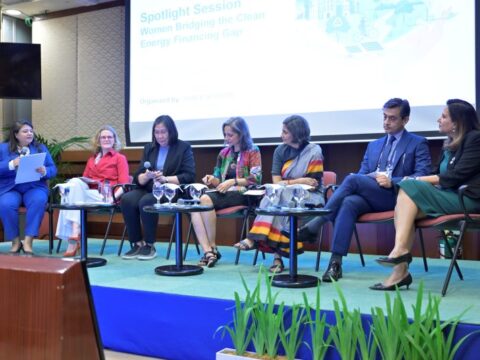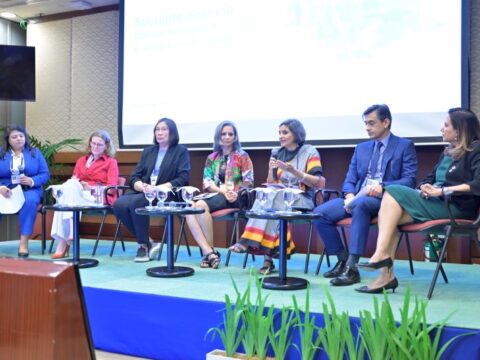The Asia Clean Energy Forum (ACEF) 2024 featured a pivotal spotlight session on June 6, 2024, at the Asian Development Bank Headquarters in Manila, Philippines. Titled “Women Bridging the Clean Energy Financing Gap,” this session brought to light the critical role of women in the clean energy sector, emphasizing the persistent gender gap and the financial barriers women-led ventures face. Co-organized by USAID’s South Asia Regional Energy Partnership (SAREP) program and South Asia Women in Energy (SAWIE), the session aimed to foster a more inclusive and sustainable energy future by highlighting strategies to bridge the financing gap for women.
The event commenced with a Welcome Address by Monali Zeya Hazra, Regional Energy & Clean Energy Specialist and Mission Environment Officer at the Indo-Pacific Office, USAID/India. She highlighted on the criticality of the Gender Equality and Social Inclusion (GESI) lens as a core-guiding principle at USAID. She also briefly introduced the work at SAREP on mobilizing green investments and spoke about the vision at SAWIE. The keynote address by Dr. Leena Srivastava, Former Deputy Director General of the International Institute for Applied Systems Analysis (IIASA), set the stage for a thought-provoking session. Dr. Srivastava underscored the dual challenges of an urgent clean energy transition and a persistent gender gap, and how we need to set ambitious targets when we think about bridging the glaring gender gaps.
Farah Ahmed, Cross-cutting Lead at USAID’s SAREP program, facilitated the session, beginning with context setting by Ripu Bhanjan Singh, Strategy Consultant at the US India Strategic Partnership Forum (USISPF). Mr. Singh highlighted the stark underrepresentation of women in the energy workforce, particularly in South Asia, where participation ranges from 3-15%. He emphasized the importance of platforms like SAWIE, which aims to catalyze more women in energy into key leadership roles.
The panel discussion, moderated by Dr. Nidhi Prabha, Gender Equality and Social Inclusion (GESI) Advisor at USAID’s SAREP, featured a distinguished lineup of speakers. Annika Seiler, Principal Energy Specialist at ADB; Sunita Dubey, Country Representative for Vietnam at The Global Energy Alliance for People and Planet (GEAPP); Laurie Navarro, President of CSi Clean Energy Solutions International Inc, ; Ragini Bajaj Chaudhary, Investment Director at Caspian Debt; Bishal Thapa, Senior Director-India at CLASP; and Kavita Gandhi, Executive Director of the Sustainable Energy Association of Singapore (SEAS), shared their insights on overcoming financial barriers for women-led clean energy ventures.
These were the key takeaways from the session discussed by the panelists, aimed at driving meaningful change:
- Setting ambitious targets is crucial for promoting inclusivity in the clean energy sector.
Simplifying access to finance is crucial for empowering women entrepreneurs, especially considering their lack of collateral and asset ownership. Collecting and analyzing gender-disaggregated data across the ecosystem and supply chain can identify gender disparities and progress, enabling tailored solutions for specific challenges. - It is essential to increase gender-diverse representation in decision-making roles in lending institutions and government bodies, promoting diversity and inclusion to inspire societal changes.
- Creating platforms that showcase women role models and providing mentorship opportunities is crucial. Podcasts featuring women in energy can enhance visibility and inspire the next generation of women leaders. Encouraging male allies to mentor and advocating for women in the sector fosters an inclusive environment.
- Targeting investment funds for women-led clean energy enterprises, offering favorable terms and mentorship, and supporting women entrepreneurs. Initiating loan guarantee programs by government and philanthropic organizations with reduced lender risk, thereby enabling women energy entrepreneurs to secure financing.
The session concluded with key takeaways summarized by Farah Ahmed, followed by a Vote of Thanks from Monali Zeya Hazra. This ACEF 2024 Spotlight Session emphasized the importance of women in the clean energy sector, highlighting strategies to bridge the financing gap and ensuring a more inclusive, equitable, and sustainable energy future. It also emphasized the critical role of platforms like SAWIE in fostering networking and mentorships for women in leadership roles.

